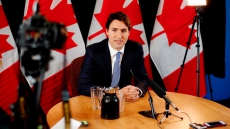The Supreme Court on Thursday rejected a plea by an IAF personnel seeking to grow a beard and said that the IAF's policies on personal appearance were not intended to discriminate against religious beliefs.
"Regulation and policies in regard to personal appearances are not intended to discriminate against religious beliefs, nor do they have the affect of doing so," a bench of Chief Justice T.S. Thakur, Justice D.Y. Chandrachud and Justice L. Nageswara Rao said while rejecting the plea by Mohammed Zubair.
Zubair, who joined the Indian Air Force on December 19, 2001, has since been discharged from service.
Zubair had on January 10, 2005, applied for permission to sport a beard but the plea was rejected by the Air Officer Commanding. He subsequently challenged in the court the directions to shave off his beard.
"Their (regulation and policies) object and purpose is to ensure uniformity, cohesiveness, discipline and order which are indispensable to the Air Force, as indeed to every armed force," the ruling said.
Speaking for the bench, Justice Chandrachud said: "India is a secular nation in which every religion must be treated with equality. In the context of the Armed Forces, which comprise men and women following a multitude of faiths, the needs of secular India are accommodated by recognising the right of worship and by respecting religious beliefs."
"Yet, in a constitutional sense, it cannot be overlooked that the overarching necessity of a force -- which has been raised to protect the nation -- is to maintain discipline," the judgment said.
That is why, the court said, "the Constitution in the provisions of Article 33 stipulates that Parliament may by law determine to what extent the Fundamental Rights ... shall stand restricted or abrogated in relation inter alia to the members of the Armed Forces so as to ensure the proper discharge of their duties and the maintenance of discipline among them".
The petitioner had moved the apex court to challenge the Punjab and Haryana High Court judgment that held that maintaining a beard was not an integral part of the religion professed by him.
The High Court further held that the matter pertained to the Armed Forces, where a certain degree of discipline had to be maintained, and that the rules and regulations broadly accommodate "the basic interest of various religions in a secular manner".





